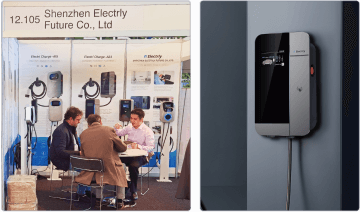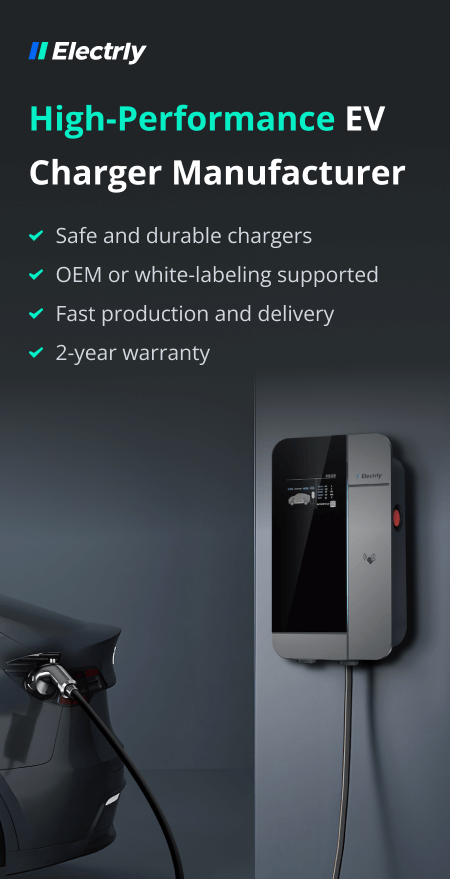As the world embraces electric vehicles, home EV charging solutions have become essential for a seamless, convenient charging experience. Two prominent brands in this space, Wallbox, and Enel X Way, have earned a reputation for delivering reliable, efficient, and user-friendly products.
In this article by Electrly, we'll dive into an in-depth comparison of their top home charging stations to help you make an informed decision. We will be focusing on Wallbox's Pulsar Plus (available in both 40 & 48 Amps) and Quasar 2, alongside Enel X's JuiceBox series, which includes the JuiceBox 40 & 48.
Appearance & Basic Product Info
Wallbox
The Wallbox Pulsar Plus and Quasar 2 are designed to provide an efficient and stylish home charging solution for electric vehicle owners. It boasts a modern, sophisticated look with its sleek gray box within a black box design.
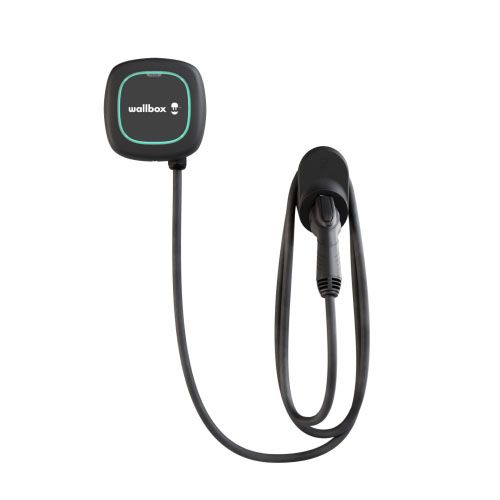
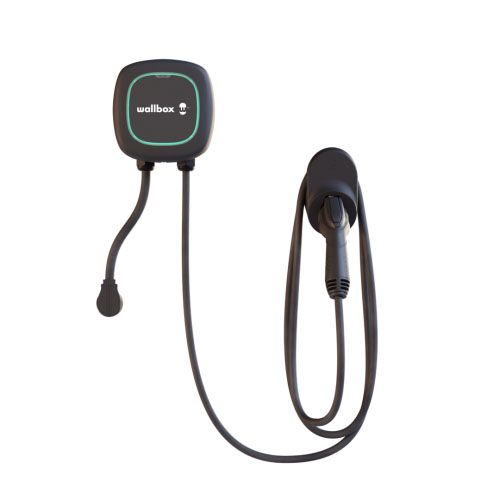
The Pulsar Plus comes in 40A and 48A options and features a modern LED halo that displays the charger's status. The 40A model offers an easy NEMA 14-50 plug installation, while the 48A variant requires a hardwired connection.
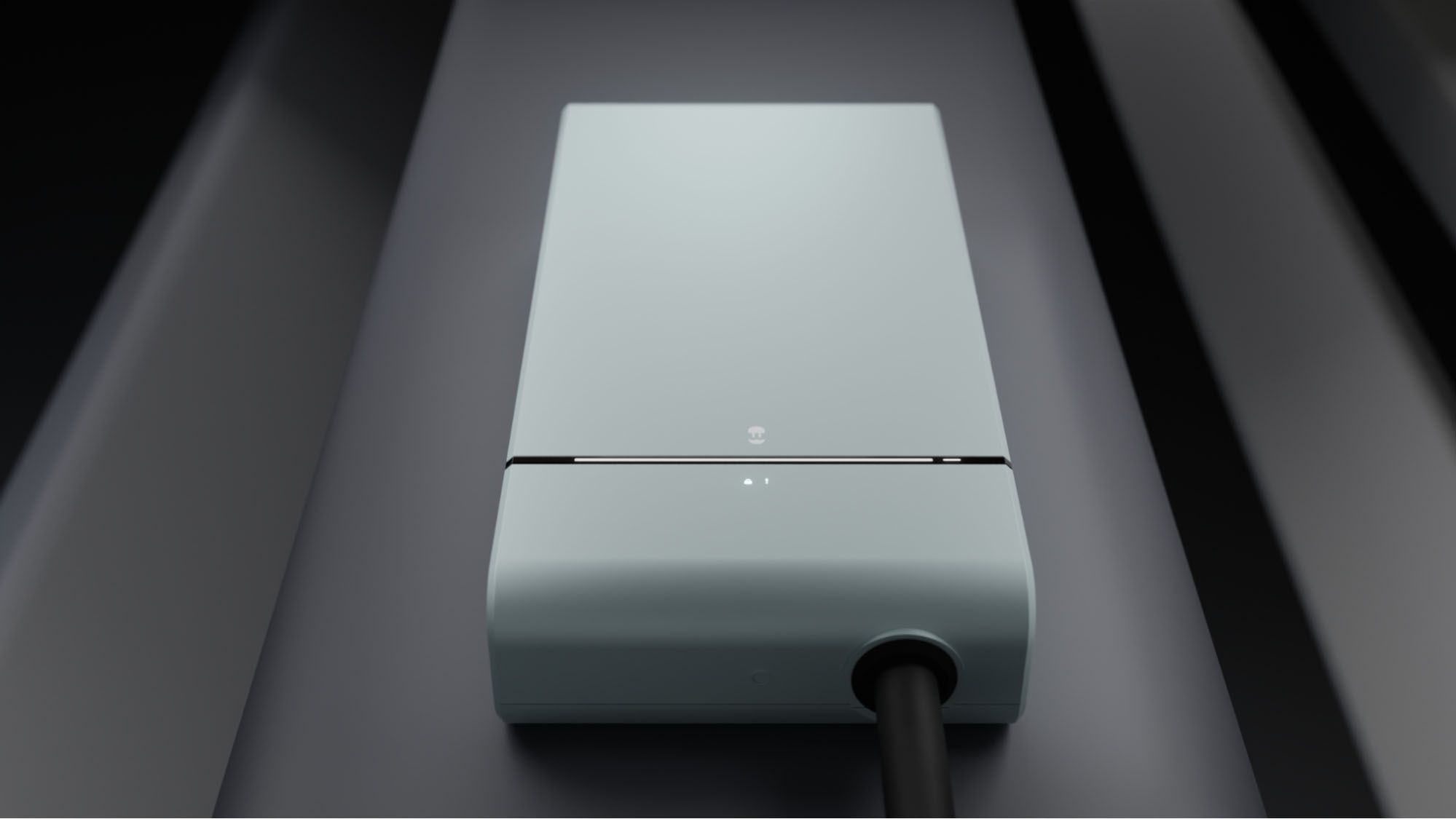
The Quasar 2, a DC home charger with bi-directional charging capability, sports a white, streamlined, lightweight design with advanced energy management features. The Quasar 2 supports hardwired installations, enabling faster EV charging and discharging while seamlessly powering your home during outages.
Enel X
Enel X's JuiceBox is a stylish and contemporary charging station, featuring a clean white design with a black cable. The rounded rectangular box and convenient cable rack underneath enhance its visual appeal.
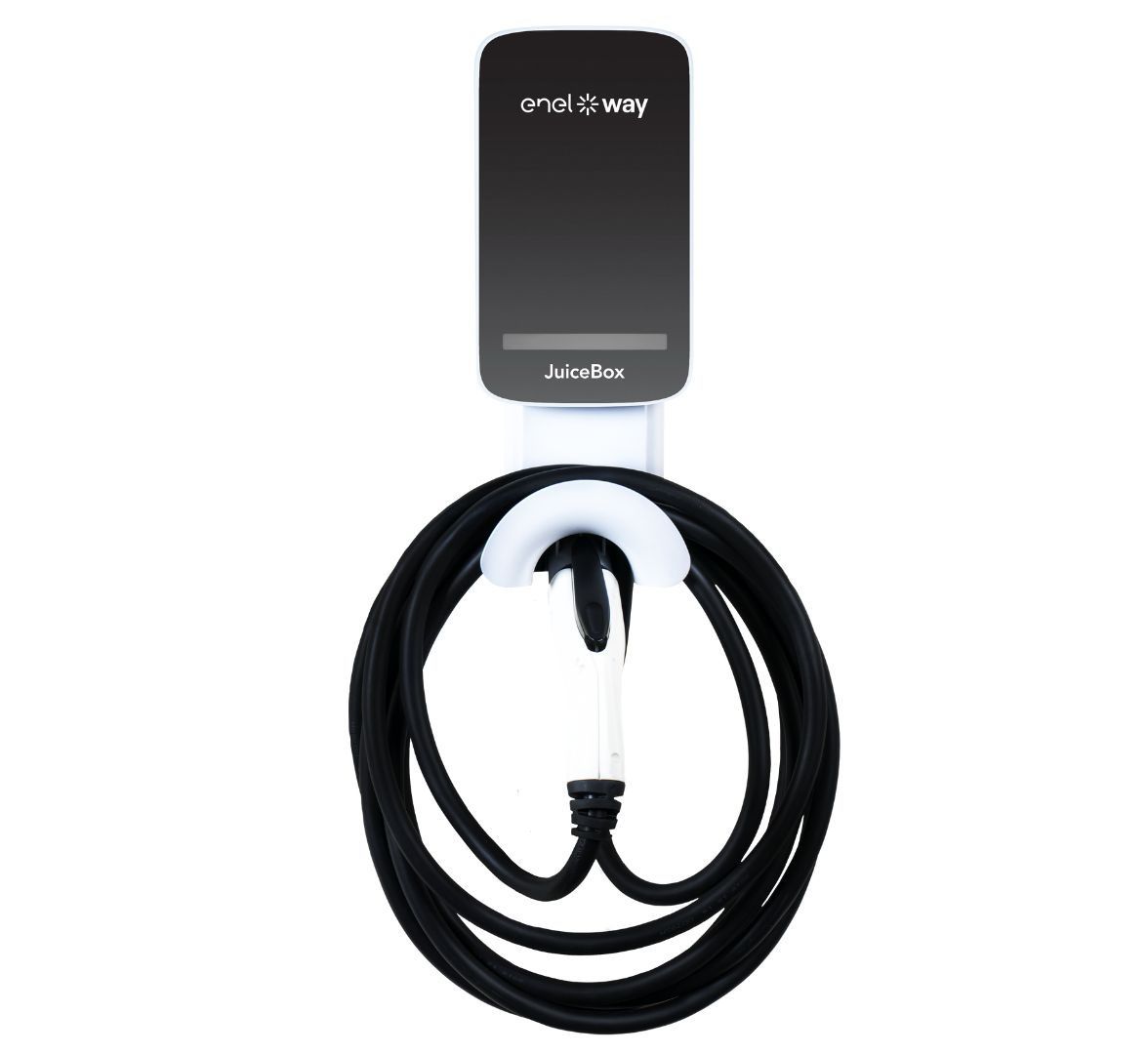
The JuiceBox is available in two versions, 40A, and 48A. Both JuiceBox 40 and JuiceBox 48 chargers provide installation flexibility, accommodating either a NEMA 14-50 or NEMA 6-50 plug connection, as well as a hardwired setup.
Cables & Connectors
Both Wallbox and Enel X chargers boast 25-foot (7.6m) cables, offering flexibility and convenience for EV owners. Both brands also equipped with the versatile J1772 connector, ensuring compatibility with most electric vehicles. For those with unique charging needs, adapters can be easily acquired to accommodate various connector types.
To make sure the charger you choose matches the charging socket on your vehicle, carefully go through the charging product information and refer to our Guide to EV Charging Plugs & Modes.
Charging Speed
For the Wallbox Pulsar Plus, the charging speed depends on the power load of the model. The 40 Amp version has a power load of 9.6 kW, allowing a Tesla Model 3 with a 60 kWh battery pack to be charged from 10% to 80% in approximately 5 hours. The 48 Amp model as well as the Quasar 2 has a higher power load of 11.5 kW, reducing the charging time to around 4 hours.
In comparison, the Enel X JuiceBox, available in 40 and 48 Amp versions, also has varying charging times and power loads. The 40 Amp model has a power load of 9.6 kW, charging a Tesla Model 3 with a 60 kWh battery pack from 10% to 80% in around 5 hours.
The 48 Amp version has a power load of 11.5 kW, achieving the same in about 4 hours. This puts the Pulsar Plus and JuiceBox on par in terms of charging speed for their respective models, while the Quasar 2 offers similar charging capability with additional features.
Durability & Warranty
The Wallbox Pulsar Plus offers a 3-year warranty and has an IP54 rating, which protects it from dust, particles, and water sprays. The Enel X Juicebox offers the same 3-year warranty but has a NEMA 4X (IP66) rating, providing even better protection against high-pressure water sprays from all directions.
The Wallbox Quasar 2 has a NEMA 4 (IP66) rating as well as a 3-year warranty. It offers protection against windblown dust, rain, sleet, and snow, making it a durable option for any inside/outside working environment.
Tesla Vehicle Compatibility
In terms of charging connectors, both the Wallbox Pulsar Plus and Enel X Juicebox support Tesla vehicles with the use of an SAE J1772 adapter or a CCS 1 adapter. Tesla vehicles are also compatible with the power delivery of the mentioned product.
Connectivity & Smart Features
Both Wallbox and Enel X's Juicebox offer a variety of smart features to make EV charging easier and more convenient. The Wallbox Pulsar Plus boasts WiFi or Bluetooth connectivity, allowing users to control vehicle charging, monitor charging status, and schedule charging times via the myWallbox app remotely. It is also compatible with Google Assistant and Amazon Alexa.
The Wallbox Pulsar Plus also features load management functionality, which helps balance your home's energy use and prevents overloading your electrical system. It also includes the unique Eco-Smart Solar feature, allowing users to charge their EVs using solar energy with two modes to choose from.
The Wallbox Quasar 2, however, is an even more advanced DC charging system for home uses, and the charger is equipped with a bi-directional charging function that can power your household circuits for over 3 days during a power outbreak. Along with the solar charging feature, the Wallbox Quasar 2 is a future-proven smart energy management system ready for residential deployment.
Similarly, Enel X's Juicebox also offers a range of smart charging features accessible through the JuicePass app, such as remote start & stop, scheduling charging times, and real-time energy consumption statistics. The Juicebox has WiFi connectivity and is compatible with Google Assistant and Amazon Alexa. Like the Pulsar Plus, it also features load management functionality and power-sharing through its app.
Charging Box Costs
The Wallbox Pulsar Plus costs $649 for the 40-amp version and $699 for the 48-amp version, while the more advanced Quasar 2 does not have a price tag yet. The Juicebox costs $699 for the NEMA 6-50 plug-in version, $749 for the NEMA 14-50 plug-in version, and $749 for the hardwired version.
The necessary installation costs will depend on the specific installation requirements, actual electrical work needed for each individual home, as well as material expenses and labor involved.
Choosing The Right Home EV Charging Station
In conclusion, choosing the right home EV charging station depends on several factors such as charging speed, product features, durability, and overall cost. Both Wallbox Pulsar Plus and Enel X JuiceBox series offer reliable and user-friendly charging experiences for residential use, with each product showcasing unique features and capabilities.
Ultimately, EV home charging solutions may vary in terms of costs and equipment depending on your specific needs, budget, and personal preferences. We hope this comparison helps you make an informed decision as you embark on your electric vehicle journey.
FAQs
1. Can I install a Wallbox home EV charger or a Juicbox charger by myself?
Yes, you can install a Wallbox or Juicebox home EV charger by yourself, but only for the plug-in versions with a NEMA 14-50 or NEMA 6-50 plug, and only in the case that you do have one of these plugs already installed.
For the hardwired version, it is recommended to hire a certified electrician to ensure proper EV home charger installation and compliance with local electrical codes and regulations. Incorrect installation can result in damage to the charger, your EV, or your home's electrical system.
2. Is my vehicle compatible with the mentioned home electric car charger?
Both Wallbox and Juicebox chargers come with the versatile J1772 connector, ensuring compatibility with most electric vehicles. However, it is always recommended to double-check your vehicle's compatibility before purchasing and installing a home electric car charger. Adapters can also be acquired to accommodate various connector types if needed.
3. Am I eligible for Federal subsidies or tax rebates if I install a Wallbox or Juicebox EV charger at home?
Yes, you may be eligible for Federal subsidies or tax rebates for installing a Wallbox or Juicebox EV charger at home. The Federal government offers a tax credit of up to 30% of the cost of the charging equipment and installation, up to a maximum of $1,000.
Note that the tax eligibility requirements and credit amounts may vary between individual conditions and resident states, so you should consult with a tax professional or visit the IRS website for more information.
4. Can I install the listed EV charging box in my detached garage?
Yes, you can install Wallbox and Juicebox home EV chargers in a detached garage. However, additional materials and costs may be required depending on the distance from your main electrical panel. It is recommended to consult with a licensed electrician to assess the EV charger installation requirements and ensure compliance with local building codes.
